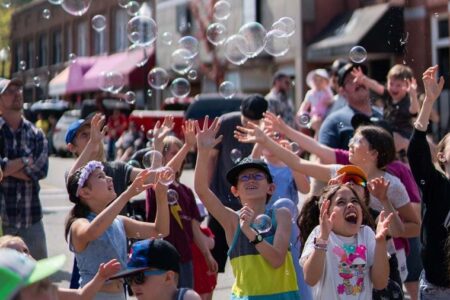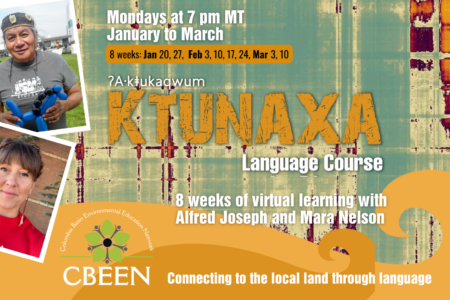BC mandates masks at middle and secondary schools, tightens guidelines
Enhanced safety measures and $121.2 million in federal funding are on the way, as the Province continues to strengthen health and safety plans in K-12 schools to keep students, teachers and staff safe during the pandemic.
All middle and secondary students and K-12 staff will now be required to wear non-medical masks in all indoor areas, including when they are with their learning groups. The only exceptions are when:
- sitting or standing at their seat or workstation in a classroom;
- there is a barrier in place; or
- they are eating or drinking.
Prior to these changes, masks were required for middle and secondary students and all K-12 staff in high-traffic areas, like hallways and outside of classrooms or learning groups when they could not safely distance from others.
For elementary students, wearing masks indoors remain a personal choice. These updates are part of ongoing work of the provincial education steering committee and are in alignment with provincial health updates. Updated guidelines for the child care sector will be made available in the coming week.
“To make sure schools continue to be as safe as possible for students and staff as the pandemic evolves, we have worked with provincial health and our partners on a continuous review of the guidelines, adapting and responding when needed,” said Jennifer Whiteside, Minister of Education. “We want students, their families and staff to feel confident with the safety measures in place. That’s why we’re making these updates.”
Guidelines have also been strengthened for physical education and music classes. High-intensity physical activities are to be held outside as much as possible. Shared equipment or items, such as weight machines, treadmills or musical instruments, can be used only if they are cleaned between use, according to strict school sanitization guidelines. Students using equipment or playing instruments should also be spaced at least two metres apart and masks are to be used when singing.
Since September 2020, more than $5.7 million of the K-12 Education Restart Plan for school districts has been used to purchase 3.9 million masks for students and staff.
“Educators, administrators and staff have done a great job of adapting our schools to make them safe and ensure important in-class learning continues,” said Dr. Bonnie Henry, B.C.’s provincial health officer. “Since the start of the school year, we have paid close attention to our schools and learned much, including the importance of having robust safety plans and using the layers of protection. Masks are one important layer, and these updated guidelines will strengthen how and where they should be used to protect everyone.”
To support B.C.’s COVID-19 response for K-12 education, the federal government announced $242.4 million in one-time funding for the 2020-21 school year, with the first half of the investment allocated in September. The second instalment of this funding arrived on Jan. 29, 2021. The Ministry of Education is allocating $101.1 million to school districts and $7.5 million to independent schools, and is providing school districts an additional $3.5 million to manage COVID-19 exposures in schools.
To support Indigenous learners, $8.2 million will go towards addressing learning loss and student health, technology for remote learning, education and mental health support, adapting classroom spaces and enhanced cleaning.
There will also be $900,000 allocated for six regional rapid response teams, one for each health authority and one dedicated to support independent schools, with representatives from both school and provincial health staff. These teams, announced by the provincial health officer, will continue to improve the speed of school exposure investigations, so health authorities can inform school districts and families more quickly.
Rapid response teams will conduct physical or virtual site inspections to ensure K-12 COVID-19 health and safety guidelines are being followed consistently. If there has been a significant exposure event or an in-school transmission, rapid response teams will be deployed to conduct a review and make recommendations, if needed.
School principals and vice-principals at each public and independent school are being provided with updated COVID-19 health and safety checklists to ensure they consistently follow provincial guidelines. Additionally, families in their local communities are reminded of the personal measures they can take to help keep schools safe.
School districts and independent school authorities will be required to confirm every school has completed the checklist and safety plans have been updated to reflect the updated guidelines by Feb. 26, 2021. All schools will also post updated plans publicly.
One of the most important factors to keeping schools safe is a daily screening for any COVID-19 symptoms, which is why daily health checks continue to be required. To support daily screening, a new K-12 health-checker app has been developed for students and their families and can be found at: https://www.k12dailycheck.gov.bc.ca
The app will allow people to answer simple questions every day. It will inform them if they can attend school or if they need to self-isolate and contact 811 to be screened for COVID-19.
Learn More:
The BC Centre for Disease Control has a new website with information and resources about health and safety measures in K-12 schools, student and staff safety, and what happens when there is a COVID-19 case in school: www.bccdc.ca/schools
Families and students can find up-to-date information about K-12 schools at: https://www.gov.bc.ca/safeschools
The B.C. K-12 daily check app can be found at the following addresses:
Apple: https://apps.apple.com/us/app/bc-k-12-daily-health-checker/id1547334827
Google: https://play.google.com/store/apps/details?id=com.qp.k12App


























Comments